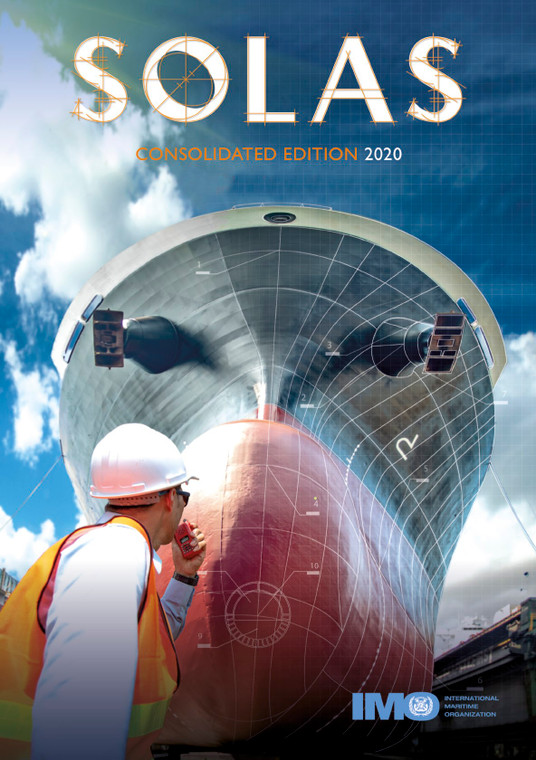
Of all the international conventions dealing with maritime safety, the most important is the International Convention for the Safety of Life at Sea, better known as SOLAS, which covers a wide range of measures designed to improve the safety of shipping.
Since 1914, there have been four new versions of SOLAS. The present version was adopted in 1974 and entered into force in 1980. To provide an easy reference to all SOLAS requirements applicable from 1st January 2020, this edition presents a consolidated text of the Convention, its Protocols of 1978 and 1988 and all amendments in effect from that date. Additionally, it includes Unified Interpretations of SOLAS regulations, which were adopted by the Maritime Safety Committee.
The International Convention for the Safety of Life at Sea (SOLAS), 1974, currently in force, was adopted on 1st November 1974 by the International Conference on Safety of Life at Sea, under the auspices of the International Maritime Organization (IMO). The Convention entered into force on 25th May 1980 and has since been amended twice, by means of protocols:
- By the Protocol adopted on 17th February 1978 by the International Conference on Tanker Safety and Pollution Prevention (1978 SOLAS Protocol), which entered into force on 1st May 1981; and
- by the Protocol adopted on 11th November 1988 by the International Conference on the Harmonized System of Survey and Certification (1988 SOLAS Protocol), which entered into force on 3rd February 2000 and replaced and abrogated the 1978 Protocol, as between Parties to the 1988 Protocol.
Part
1
Chapter
1
General
provisions
Chapter 2.1 Construction – Structure, subdivision and stability, machinery and electrical installations
Chapter 2.2 Construction – Fire protection, fire detection and fire extinction
Chapter 3 Life-saving appliances and arrangements
Chapter 4 Radiocommunications
Chapter 5 Safety of navigation
Chapter 6 Carriage of cargoes and oil fuels
Chapter 7 Carriage of dangerous goods
Chapter 8 Nuclear ships
Chapter 9 Management for the safe operation of ships
Chapter 10 Safety measures for high-speed craft
Chapter 11.1 Special measures to enhance maritime safety
Chapter 11.2 Special measures to enhance maritime security
Chapter 12 Additional safety measures for bulk carriers
Chapter 13 Verification of compliance
Chapter 14 Safety measures for ships operating in polar waters
Appendix Certificates
Part
2
Annex 1 Certificates and documents required to be carried on board ships
Annex 2 List of resolutions adopted by the SOLAS Conferences
A??s a specialized agency of the United Nations, IMO is the global standard-setting authority for the safety, security and environmental performance of international shipping. Its main role is to create a regulatory framework for the shipping industry that is fair and effective, universally adopted and universally implemented.
In other words, its role is to create a level playing-field so that ship operators cannot address their financial issues by simply cutting corners and compromising on safety, security and environmental performance. This approach also encourages innovation and efficiency.
Shipping is a truly international industry, and it can only operate effectively if the regulations and standards are themselves agreed, adopted and implemented on an international basis. And IMO is the forum at which this process takes place.
- Number of Pages:
- 585
- Published Date:
- September 2020
- Binding Format:
- hardback
- Book Height:
- 248 mm
- Book Width:
- 215 mm
- Weight:
- 2.4 kg
- Author:
IMO
- Preview:
- Yes
- Publication Date:
- September 2020
 Witherbys.com
Witherbys.com



